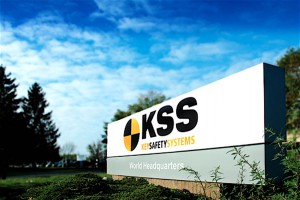
Key Safety Systems agreed to a $1.6 billion acquisition of Takata, except its airbag replacement business.
The final chapter for Takata is being written as Key Safety Systems will purchase most of the assets of the Japanese suppliers for $1.6 billion.
The Detroit-area supplier gets everything, including the company’s 45,000 employees, but not the operations producing replacement airbag kits for Takata’s faulty airbag recall. Takata will run that until the operations are complete.
Most of the proceeds will go to pay the $1 billion penalty levied against Takata from a U.S. criminal fraud judgement.
The paperwork finalizing the deal was submitted to the bankruptcy court last week and the sale is expected to close next year.
(Less than half of potentially deadly Takata airbags replaced. For the story, Click Here.)
Takata has been blamed for knowingly marketing faulty airbags that can improperly inflate during a crash, sending plastic and metal shrapnel into the passenger compartment. At least 19 people are known to have died due to the defect, most in the United States, with more than 180 others injured.
Nearly all automakers have used at least some of the faulty bags, from niche players like Rolls-Royce and Ferrari to major manufacturers such as General Motors, Volkswagen and Honda. It has been estimated that a quarter of the light duty vehicles in use in the U.S. use Takata airbags.
Currently, about 42 million vehicles are or will be recalled accounting for 69 million airbags, as federal regulators are staging their safety campaign, targeting older vehicles first due to a shortage of replacement airbag inflators. Tens of millions of other vehicles are being recalled outside the U.S.
(Click Here for more about Takata’s bankruptcy filings.)
The sale is also expected to lead to a speed-up of the recall process which has been going painfully slowly, according to the National Highway Traffic Safety Administration. The latest government data shows only about 43% of the vehicles with defective Takata Airbags have yet been repaired.
One reason is a shortage of replacement inflators, something expected to be addressed by the bankruptcy sale. But the other challenge is finding the owners of all the vehicles covered by the recall. They tend to be older models that may have been sold several times, making the process difficult.
Not everyone is pleased with the terms of the sale, some experts warning that there could be many victims who will not receive full, perhaps even any, compensation.
(To see more about the sale of Takata to Key Safety, Click Here.)
Automakers are likely also to recover only a fraction of their recall-related costs, especially if they reach large settlements with consumer victims, according to Karl Brauer, an analyst with KelleyBlueBook. “It’s likely every automaker involved in this recall will have to subsidize the process because the value of Takata’s assets isn’t enough to cover the costs of this recall,” he said.
